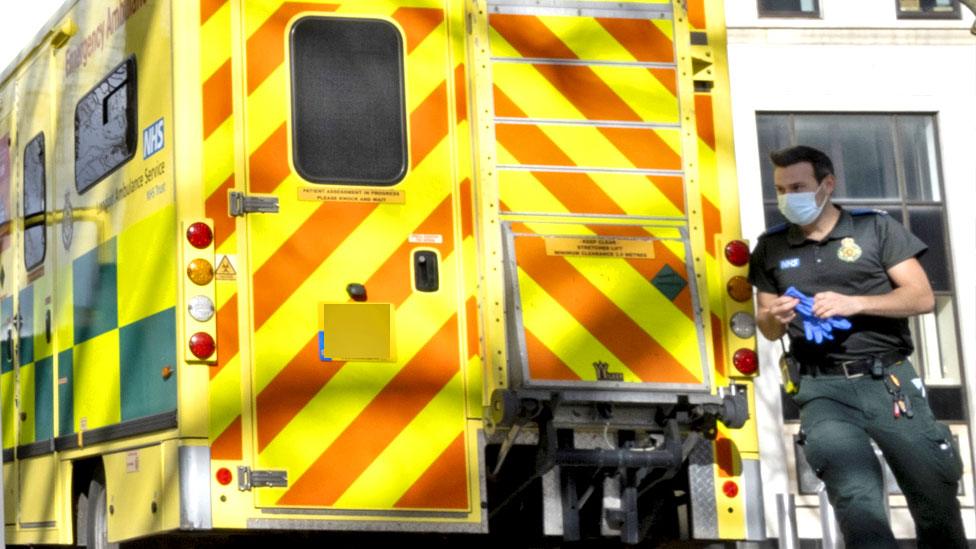Ambulance delays in Wales costing crews thousands of hours
- Published
- comments
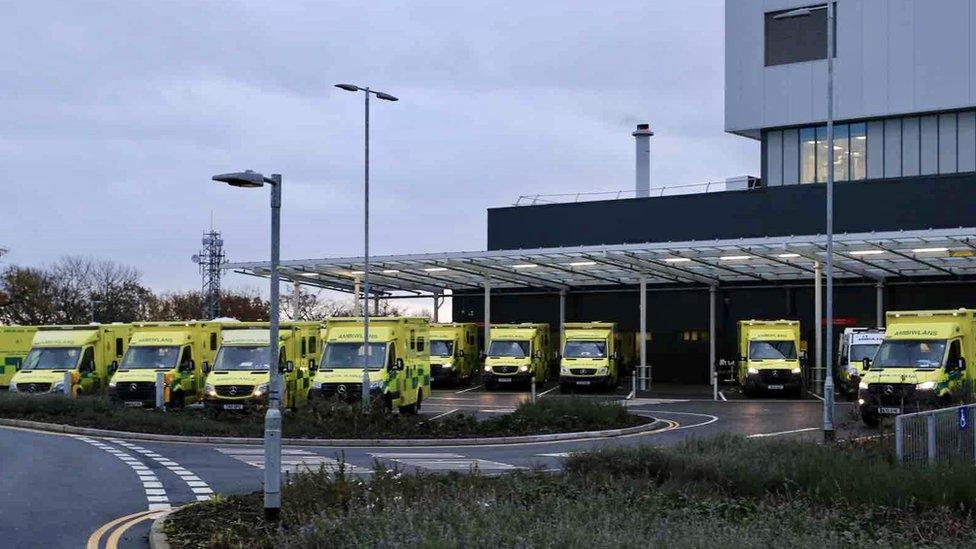
Healthcare Inspectorate Wales report found handover delays are increasing the risk to patient safety
Long delays outside hospitals are costing ambulance crews thousands of hours when they are unable to respond to other calls, a new report has found.
It found frequent delays were having a "detrimental" impact on the NHS's ability to care for patients.
A Healthcare Inspectorate Wales (HIW) report looked at patient delays between April 2020 and March 2021.
During this period, crews had to wait more than an hour to transfer patients on no fewer than 32,699 occasions.
"It's an entire system issue. I'm not under any illusion that's an easy fix for anyone, but we do need the system to work closely together," said Alun Jones, interim chief executive of HIW.
They key findings of the report include:
Handover delays causing increased risk to patient safety, both for those waiting in ambulances or those waiting in the community for an ambulance
Ambulance staff feeling frustrated at their inability to effectively carry out their roles as a consequence of delays
Staff worried about difficulties in getting patients access to toilets or food and drink, and concerns about infection control while patients wait in the back of ambulances
Concerns about processes to escalate concerns if a patient deteriorates
The review was based on assessment, interviews and surveys with more than 400 NHS staff and more than 100 patients.
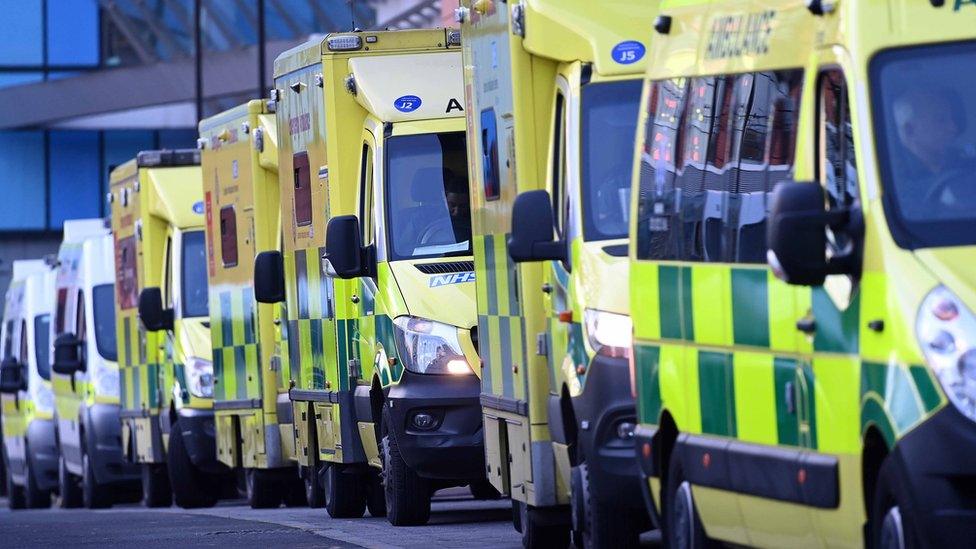
Delays are causing a risk to patients waiting in ambulances, but also people in need of an ambulance
HIW makes clear that handover delays are not directly an ambulance service problem, but symptomatic of problems across the entire health and social care system.
A&Es become overcrowded when hospital wards are full and hospital wards become full when there are delays in discharging patients.
The report makes 20 recommendations and says the ambulance service, health boards and Welsh government need to work together to make improvements.
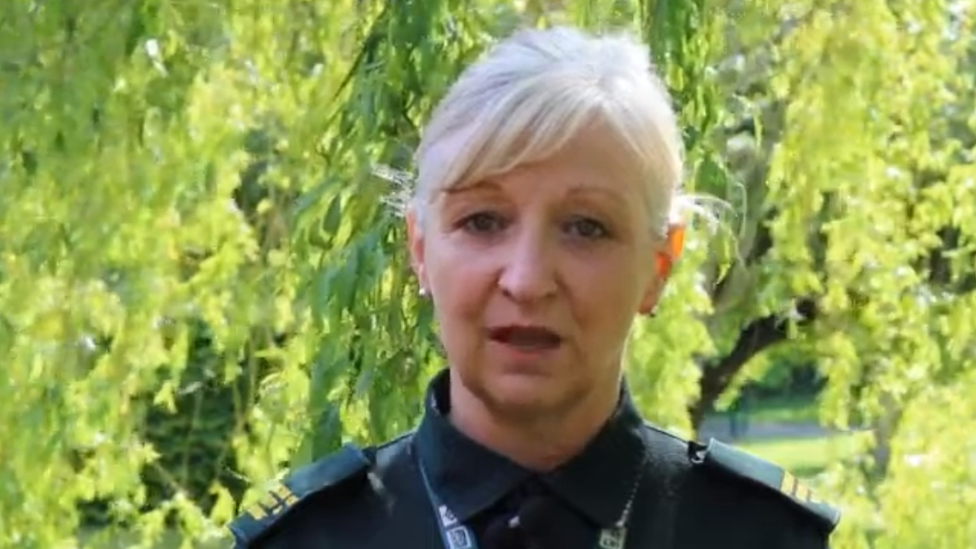
The ambulance service's Claire Roche said some crews spent entire shifts with the same patient in the back of their vehicle
Claire Roche of the Welsh Ambulance Service said: "Our emergency ambulance service exists to deliver life-saving immediate care and to take patients promptly to hospital for the necessary treatment.
"For the Welsh Ambulance Service, this is about getting to the root cause of the issue in order to resolve it, rather than adapting to a situation so that it becomes the new normal.
"We welcome the fact that Health Inspectorate Wales is shining a light on this issue, and we will continue to work with colleagues in health boards and Welsh government to make improvements."
Darren Hughes, director of the Welsh NHS Confederation said the review "demonstrates the impact that the enormous pressures on the NHS are having".
"The NHS in Wales is working relentlessly to cope with current levels of demand and to ensure everyone waiting for care is seen as soon as possible," he added.
"Staff are doing all they can to continue delivering care for those who need it. We thank them and the public for doing all they can to support the NHS."
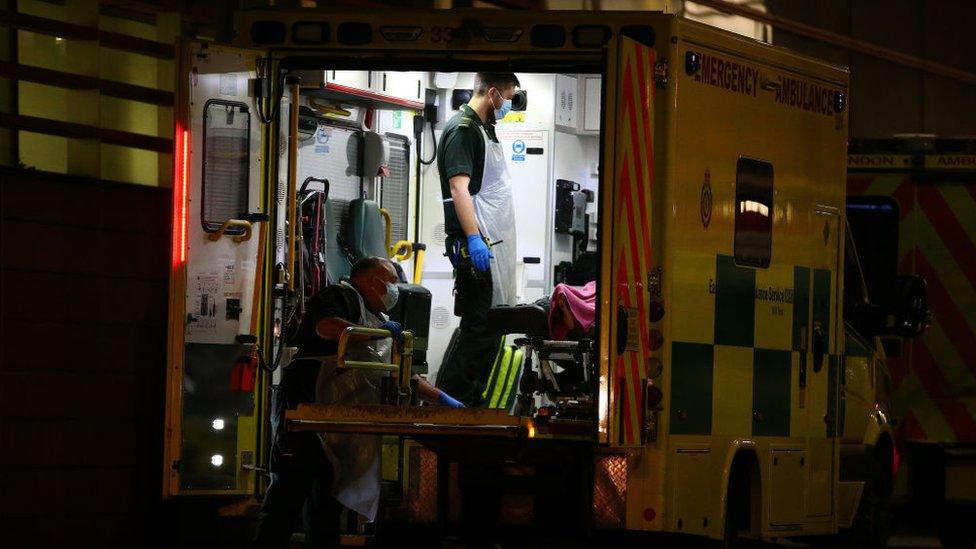
Some ambulance staff have previously told BBC Wales that the pressure has left them "broken"
The Welsh government said: "Health boards are responsible for improving ambulance patient handover times and we expect to see them deliver improvement in this area.
"A broad range of actions are already in place, including recruitment of additional ambulance clinicians, creation of urgent primary care centres and a new national programme to support people to return home from hospital when ready."
"We will continue to work with the chief ambulance services commissioner, WAST and Wales' wider health and care system to improve quality of care, patient experience and staff wellbeing."

'Not fit for purpose'
Chris Williams-Ellis waited two hours for an ambulance after "life-changing" burns
Chris Williams-Ellis was left with 45% burns after a car he was working beneath caught fire.
He waited an hour and 18 minutes for an ambulance despite eight 999 calls being made from his home in Brynsaithmarchog, Denbighshire, on 8 September last year.
The first was made at 14:51 by Mr Williams-Ellis's partner Catherine, followed by seven more from the fire service, the final one being at 16:04.
An air ambulance arrived at 16:17.
His mother, Philomene Williams-Ellis, said on Thursday: "The ambulance was called and it didn't come.
"The time it took between when the call was made and when the helicopter landed at Liverpool was just a minute off three hours."
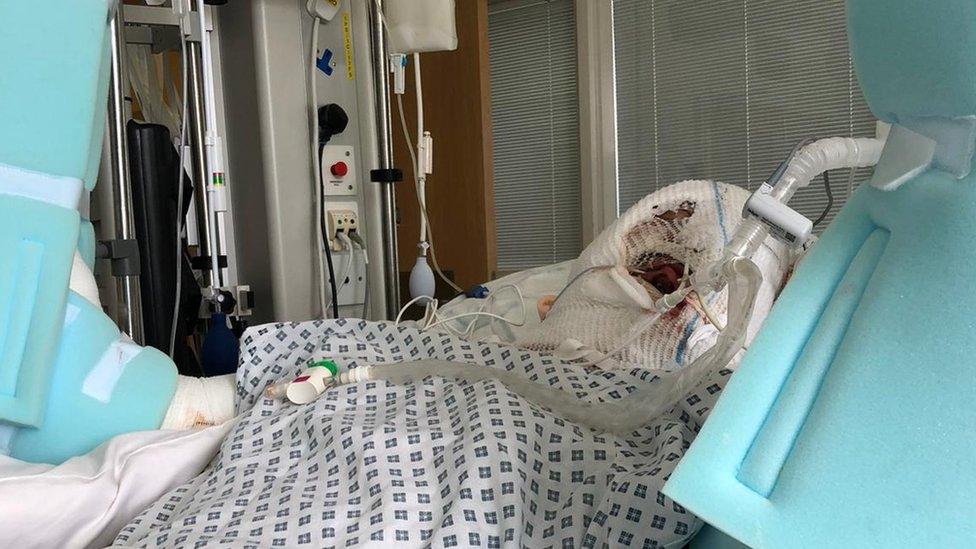
Chris Williams-Ellis's mother said his flesh was coming off his body as he waited for an ambulance
As he waited he was looked after by fire crews who were attending.
"The flesh was coming off his body, he was in absolute agony," Ms Williams-Ellis said.
"All the time Christopher waited he was fully aware of what was happening to him and what was happening around him.
The Welsh Ambulance Service has met Ms Williams-Ellis to discuss what went wrong.
"There were 36 ambulances supposed to be on call that day," she said.
Four were off "for various reasons", she said.
"Thirty-two were in car parks at various hospitals and they were there for hours and hours."
The reason, she said, was because patients were waiting in the vehicles until there was space for them to be seen in the hospitals.
"For almost an hour there was not one emergency vehicle available."
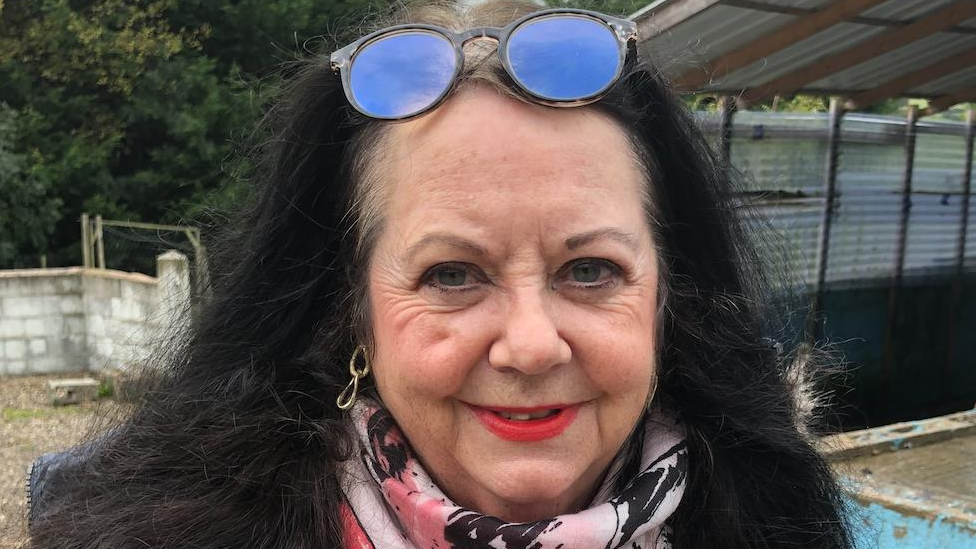
Philomene Williams-Ellis says the NHS in Wales is "not fit for purpose"
She said the NHS in Wales was "not for purpose."
"The person who needs to answer is the minister for health in Wales and the trusts who are running the hospitals."
The Welsh Ambulance Service NHS trust offered a "sincere apology" last year for "errors" that contributed to an "unacceptable" delay.
Ms Williams-Ellis said her son was "doing really well".
"He has life-changing injuries but he is a very positive person with a good attitude.
"He gets on with it. But there is a lot of anger."

MONUMENTAL MRS CAMPBELL: Wales' first black head teacher celebrated with iconic statue
MOTHERS, MISSILES AND THE AMERICAN PRESIDENT: The story of Greenham told like never before

Related topics
- Published23 September 2021
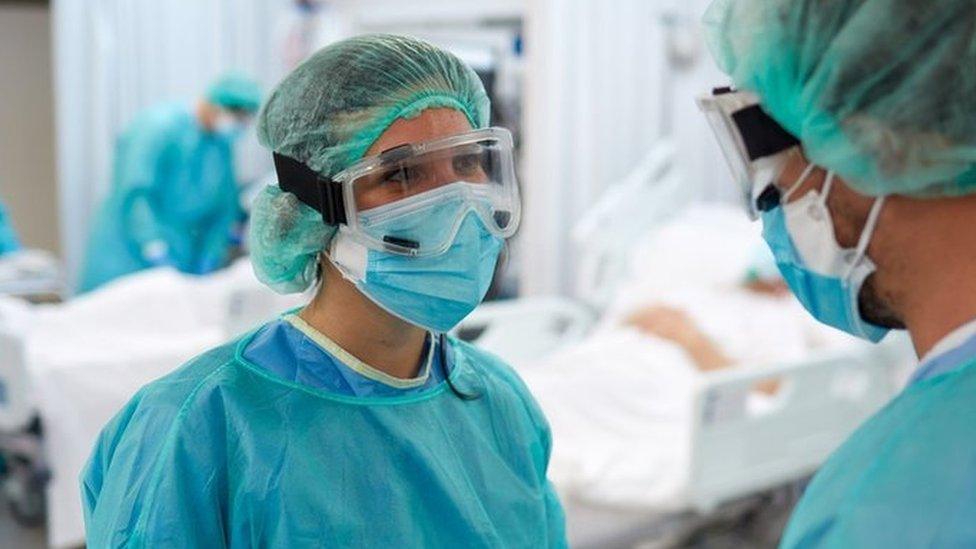
- Published10 September 2021
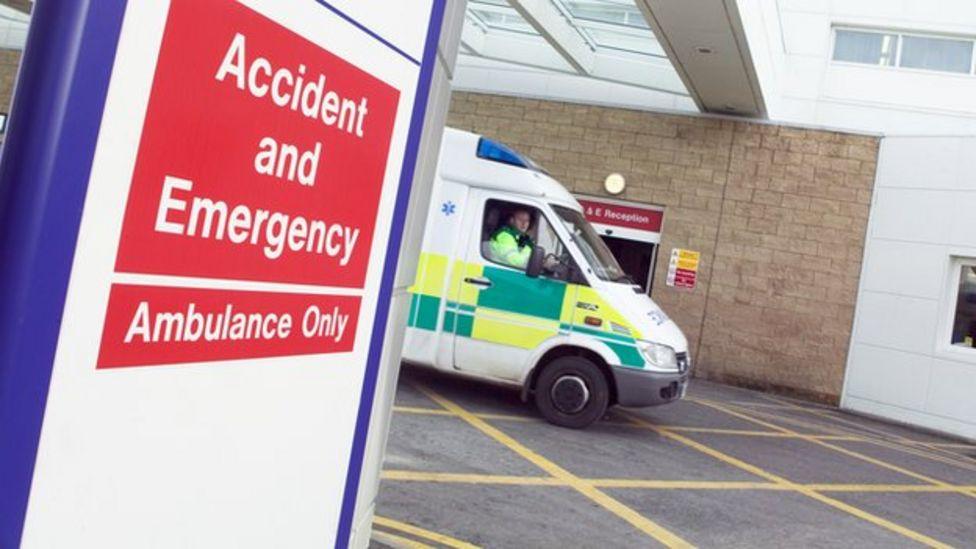
- Published20 February 2021

- Published20 September 2021
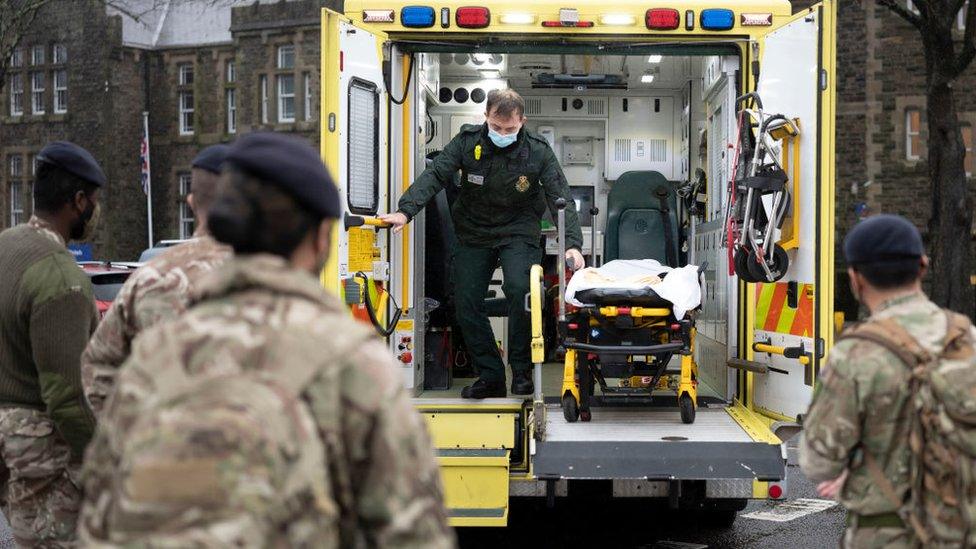
- Published11 August 2021
